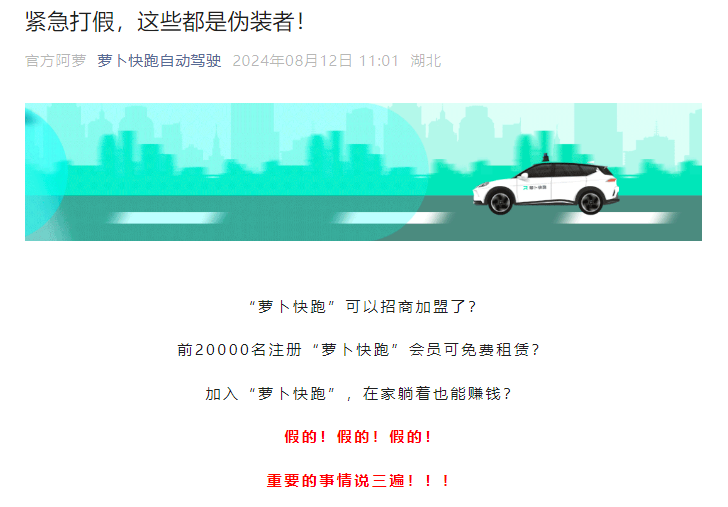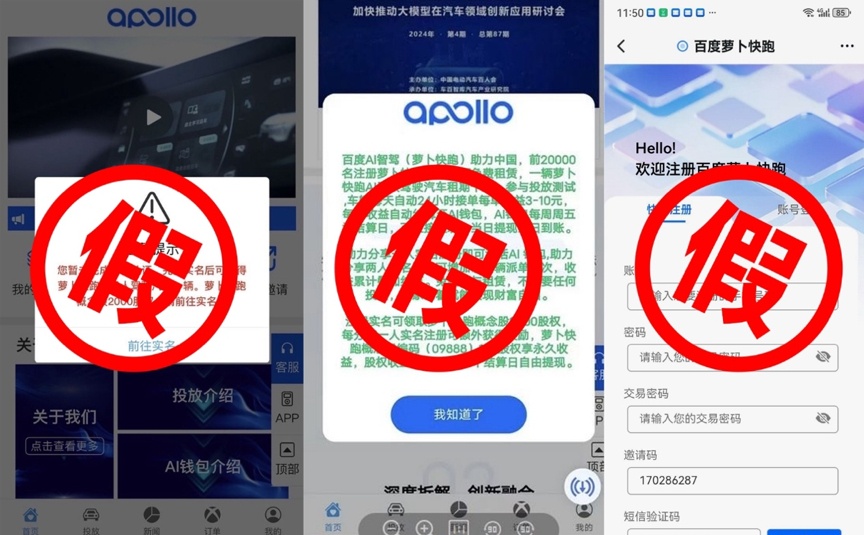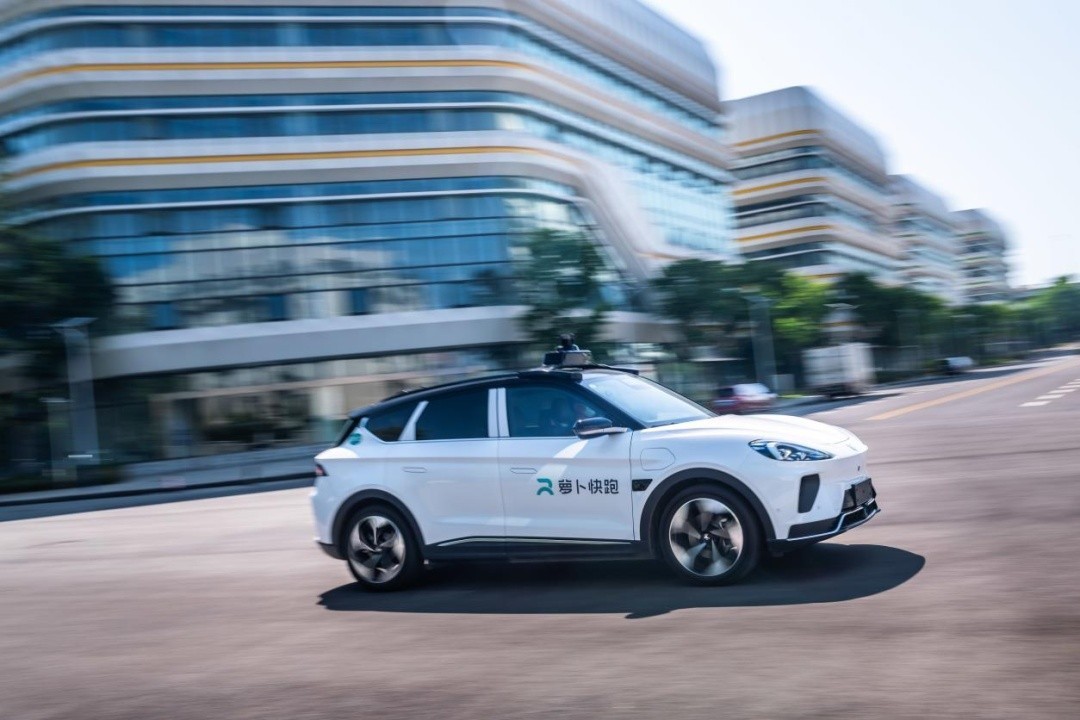Apollo Go Clarifies: No Franchise Access!
On August 12, Luobokuaipao released a statement to clarify the recent false news regarding "investment and franchising, leasing information" and so on.
On August 12, Baidu's autonomous driving travel service platform Apollo Go issued a statement on its official WeChat public platform, "Urgent Fight Against Counterfeiting, These Are All Pretenders", saying that it had recently received reports from the public that some criminals had developed fake websites and apps in the name of "Apollo Go" and spread false investment and leasing information through the Internet (social media, chat software, etc.), such as "Free leasing for the first 20,000 registered Apollo Go members".
In response to the above-mentioned suspected illegal acquisition of citizens' personal information, fraud and other illegal and criminal activities, Apollo Go has reported to the relevant departments as soon as possible. At the same time, the company has issued more than 800 reports to various social media platforms, and 736 rumors have been removed so far.

Apollo Go emphasized that, as of now, it has never carried out "investment and franchising", "leasing", "fund raising" and other related businesses by itself or authorized any third party. Any unauthorized infringement, fraud and other illegal acts that infringe on the public interest under the name of "Apollo Go" will be resolutely cracked down by the company, and the legitimate rights and interests of the company and relevant netizens will be protected through legal channels.
Zhu Wei, associate professor at China University of Political Science and Law and member of the Expert Committee of the China Consumers Association, pointed out: "Unmanned driving is in a critical period of technological exploration. Netizens should be vigilant, enhance their awareness of self-protection, and not disclose important information such as personal information and bank accounts at will. Once you find that you have been deceived, you should report it immediately and keep relevant evidence."

With the accelerated advancement of the scale and industrialization of unmanned driving, every move of Apollo Go has attracted much attention from the outside world.
In May this year, Apollo Go received many complaints for occupying the road during peak hours, rushing at red lights, and emergency braking. On the 29th of that month, Apollo Go clarified on Weibo that a series of malicious complaints, false accidents and other online content were found to be seriously inconsistent with the facts after verification and evidence collection.
In early July, the Ministry of Industry and Information Technology and other five departments issued the "Notice on the Announcement of the List of Pilot Cities for the Application of "Vehicle-Road-Cloud Integration" of Intelligent Connected Vehicles", and identified 20 cities (consortiums) including Beijing, Shanghai, Hangzhou-Tongxiang-Deqing Consortium, and Wuhan as pilot cities for the application of "Vehicle-Road-Cloud Integration" of intelligent connected vehicles. According to incomplete statistics, about 50 provinces and cities, including Shenzhen, Shanghai, Jiangsu, and Hangzhou, have introduced autonomous driving pilot demonstration policies or formulated local legislation related to autonomous driving.
In August 2021, the Radish Run platform was officially released by Baidu to provide users with paid autonomous driving travel services, with mileage and duration as billing units. Wuhan is the first batch of pilot cities. At present, the service network has covered more than 10 cities across the country, such as Beijing, Shanghai, Guangzhou, Shenzhen, etc.

Baidu's first quarter financial report data this year showed that as of April 19, Radish Run had served more than 6 million users, and the number of orders continued to rise. During the period, it provided about 826,000 rides, a year-on-year increase of 25%. The company also plans to achieve full coverage of Wuhan this year and put 1,000 sixth-generation mass-produced unmanned vehicles into operation.
At the earnings conference, Baidu founder, chairman and CEO Robin Li said that in the first quarter, the proportion of unmanned driving orders in Wuhan had exceeded 55%, and continued to rise to 70% in April, and it is expected to rise rapidly to 100% in the next few quarters. It is expected that with the increase in the number of vehicles put into use in the future, the operating cost of each vehicle will be significantly reduced, and the scale effect may be reflected. It is expected to achieve break-even in Wuhan by the end of 2024 and achieve profitability in 2025.
So far, Baidu has not announced the specific number of vehicles put into use by Carrot Run. Some media reported that the total number of Carrot Run unmanned vehicles in Wuhan in the first quarter of this year was 500, including vehicles with and without safety officers.
·Original
Disclaimer: The views in this article are from the original Creator and do not represent the views or position of Hawk Insight. The content of the article is for reference, communication and learning only, and does not constitute investment advice. If it involves copyright issues, please contact us for deletion.